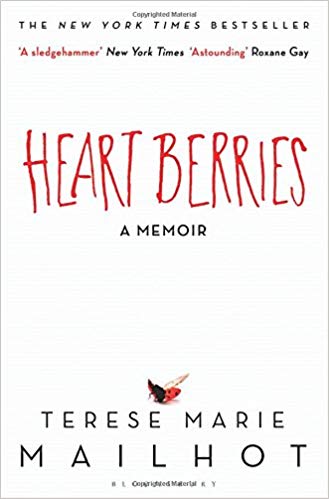When I graduate from the partial hospitalization program, I’ll receive a medallion. The people in group will adorn me with compliments and kind wishes. Then I will get on a plane and perform the persona of a successful author—a feature, interviews, a book tour. The medallion will be inside of my jacket pocket, between my fingertips. My hands will smell like a coin, and my nervous laughter will be amplified by a microphone, and women will line up to adorn me with kind wishes, and they’ll tell me they’ve been hurt too, and I’m scared I’ll reach out to hold them and the coin will fall out of my pocket like the secrets I don’t tell. The coin will fall out and I’ll have to admit that I’m a dumb Indian—and maybe that’s what they need to hear. You can’t obscure the truth with the mundane. You can’t illustrate pain for tourists.
Maybe I’ll wear the coin like a talisman, or be in the hospital again.
(‘I Used to Give Men Mercy’, Terese Marie Mailhot, Guernica magazine Feb 2018)

One writer’s journey, and so much more. It would be interesting to place this book in dialogue with Janet Frame’s An Angel at My Table, Anna Kavan’s Asylum Dance, Sylvia Plath’s The Bell Jar. I find myself remembering especially Meena Kandasamy’s When You Hit Me, which similarly makes the quality of its own sentences the theme of the work as well as the means through which that theme is explored, the proof of its own pudding.
In white culture, forgiveness is synonymous with letting go. In my culture, I believe we carry pain until we can reconcile with it through ceremony. Pain is not framed like a problem with a solution. I don’t even know that white people see transcendence the way we do. I’m not sure their dichotomies apply to me.
Of central importance also is Mailhot’s identity as a Native woman. The passages examining the difficulties she experienced as an MFA student – the internal opposition she felt to particular assumptions and demands – are marvellous and striking. The book’s genesis – as a series of individual essays – does not in the least affect its overall cohesion and resonance. A short work, but so resolute, with a quality of expression that frequently approaches poetry.
As if its words were hewn from rock. Heart Berries is the kind of book that makes you want to write, immediately, to capture moments and memories and arguments as they thrash and burn.